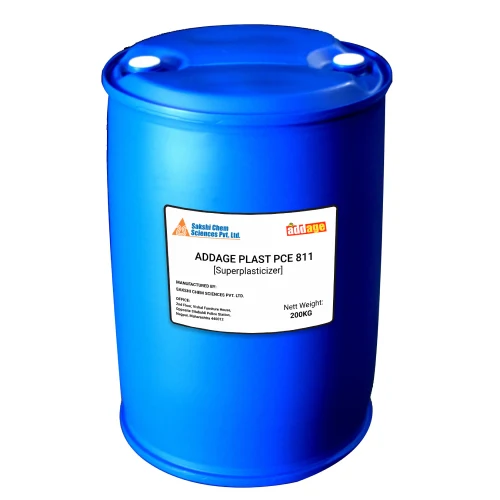A strong driveway is about more than just aesthetics; it should perform well, be durable, and have a long lifespan. No matter if you are installing a brand-new driveway or repairing an old surface, understanding how mix designs influence driveways will make the difference. The make-up of concrete or asphalt (the amount of cement, sand, aggregates, or admixtures) will determine how long your driveway is smooth, crack-free, and able to withstand weather damage.
Table of Contents
Let’s see how the various mix designs will impact driveway strength, texture, and longevity, and how selecting an appropriate Concrete Admixture plays a vital role in achieving a great finish.
Understanding Mix Design
Mix design refers to the proportions of materials of concrete, cement, water, sand, coarse aggregates, and any chemical admixtures. These proportions are selected based on:
- Required strength
- Traffic load
- Weather
- Durability
Even slight adjustments to any of these proportions can greatly impact the final surface performance. And, generally, driveways are subject to constant vehicle movement and weather. Therefore, this balance must be accurate.
For example, if you don’t put enough water in the mix, you will have difficulty placing and compacting it. If you put too much water in the mix, it will weaken the mix and introduce even more cracking. This is why professional-grade mix designs seek to maintain a proper balance of both workability and strength.
Common Driveway Materials and Their Mix Behavior
Concrete Driveways
Concrete is one of the most popular driveway materials due to its durability, low maintenance properties, and aesthetics. A concrete driveway’s strength is based on the cement-to-water ratio of the mix, as well as the materials used for the aggregates.
A typical concrete driveway mix will consist of:
- One part cement
- Two parts sand
- Three parts gravel
Water and/or admixtures as determined
Concrete Admixtures, which include superplasticizers or air-entraining agents, add workability to the mix and make the concrete less susceptible to freeze-thaw cycles. This is particularly important in colder regions, since freeze-thaw damage can cause surface spalling and cracking over time.

Asphalt Driveways
Asphalt is another popular driveway option for residential and commercial properties. It is created by mixing bitumen, a petroleum-based product, with aggregates such as sand or gravel. Asphalt is flexible – in heating and cooling cycles, it expands and contracts as the temperature changes, which aids in crack resistance.
On the negative side, asphalt has a higher maintenance repeat cycle. Over time, oxidation and UV exposure cause the binder to harden, creating brittleness to the surface layer.
When operating under traffic or climatic loads, the quality of the asphalt mixture, particularly the ratio of bitumen to aggregate, will determine its durability.
Gravel and Stone Driveways
Although not true concrete, gravel driveways are also dependent on the mix design, particularly the size and gradation of stone. Bigger aggregates tend to drain better and distribute load better, while smaller stones provide tighter compaction. A mix of the two provides enough tightness and stability with limited erosion.
How Mix Designs Influence Driveway Durability?
The mix designs influence all aspects of the durability, aesthetics, and maintenance of a driveway. Here is how:
1. Strength or Load-Bearing Capabilities
Driveways experience heavier loading from vehicles, e.g., SUVs and delivery trucks, require a denser or different mixing ratio or admixture. Higher compressive strength (M30 – M40) mixes will texturally hold (not crack or rut) surface pressure loading of vehicles.
i.e., silica fume and fly ash, compressive density is higher and improved in war resistance.
2. Workability
The workability means how easily the mix is placed and struck off to level. If you are placing a decorative or stamped driveway, then gather a mix that is more uniform and smoother to work with and closer to water. This may be achieved by the use of superplasticizer admixtures.
These reduce moisture without overhardening the concrete, leading to a uniform, clean appearance.
Conversely, driveways that are designed to have a rough, non-slip surface will benefit from mixes with slightly coarser aggregates.
3. Durability and Resistance to Cracking
In an area with high temperature fluctuations or multiple rain events, make sure the concrete driveway is made with a mix that minimizes cracking and shrinkage. Air-entraining admixtures can create tiny air bubbles, which will allow the concrete to expand during freezing and allow the bubbles to withstand the freeze-thaw cycles and avoid damaging the surface.
Water-reducing admixtures can also add density and minimize the risk of water entering the surface, which may extend the life of the driveway.
4. Environmental Conditions
The environmental conditions will greatly influence the performance of the mix designs.
In hot areas, the plastic concrete may dry too rapidly, and will become susceptible to shrinkage cracking. In this case, admixtures that delay the set time control the drying.
In colder climates, freeze-thaw cycles can lead to scaling or flaking; therefore, the use of a denser mix with entrained air is more favorable.
In coastal or humid environments, corrosion-resistant admixtures can help prevent deterioration due to the presence of salt or moisture exposure.
5. Cost-Effectiveness
Stronger or more complex mix designs may incur a greater initial cost, but they can also generate savings over the long run. Driveways constructed of higher quality materials or mixed designs require less frequent repairs, and perform longer, rendering them a more suitable overall investment.
The Role of Concrete Admixtures
Concrete Admixtures are the unsung champions of modern driveway construction (charge). These chemical additives customize and fine-tune the inherent properties of concrete to meet specific requirements.
Here’s how they assist:
Superplasticizers: Increase flowability and reduce the amount of water needed for better strength.
Accelerators: Reduce set time in colder climates.
Retarders: Slow down curing time in hot weather for better surface finishing.
Waterproofing Admixtures: Prevent water intrusion and surface erosion.
Air-entraining agents: Enhance freeze-thaw resistance and durability.
Using the correct admixture ensures that the mix will perform as designed in your local conditions, enhancing both the performance and life cycle.
Before Installing a New Driveway: A few things to think about
Load Requirements:
Determine what type of traffic your driveway will see. A residential driveway will not have the same mix design as a heavy traffic driveway.
Weather and Climate:
Temperature and moisture conditions have a lot to do with how concrete behaves. Be sure to choose a mix that can handle the conditions of the area you live in.
Surface Finish:
You need to determine if you want a decorative surface finish or not. This can affect the type of aggregate used and how consistency of the mix.
Maintenance Expectations:
Some designs require more maintenance than others. Low-maintenance designs may have a higher upfront cost, but they outlast others.
Professional Input:
Always consult a qualified contractor or materials expert. They can suggest a mix design suited to your region, soil type, and desired finish.
Conclusion
The durability and performance of your driveway are dependent solely on one key factor – the design of the mix. How the various constituents are blended determines the driveway’s ability to perform against the effects of weather, weight, and time. Knowing how the design of the mix works for driveways can help you choose materials that will not only look great but also perform for generations.
Sakshi Chem Sciences Pvt. Ltd understands that mix design and quality additives are critical for driveway construction. Our innovative Concrete Admixture solutions are formulated to improve workability, long-term performance, and/or durability of concrete surfaces.
With more than 20 years of industry experience, our advanced R&D capabilities, and a wide range of construction chemical offerings, we are committed to helping builders and contractors develop driveways that will last, withstand the elements, and offer a strong aesthetic.
Sakshi Chem Sciences – the right mix – because every great structure starts with the right mix.
Sagar Telrandhe is a Construction Engineer with a B.Tech in Construction Engineering & Management. Passionate about infrastructure development, project planning, and sustainable construction, he specializes in modern construction techniques, project execution, and quality management, contributing to efficient and innovative building.


